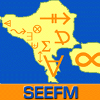The 4th South-East European Workshop on Formal Methods (SEEFM'09) took place in Thessaloniki on the 5th of December 2009. The workshop was jointly organised by CITY College (Computer Science Department) and the South-East European Research Centre (SEERC) and continued the successful series of the SEEFM workshops (SEEFM'03 - Thessaloniki, SEEFM'05 - Ohrid, SEEFM'07 - Thessaloniki).
The theme of SEEFM'09 was twofold: ‘Formal Methods for Web Services’ and ‘Formal Methods for Agent-based Systems’. The workshop attracted participation from academics and researchers from all over the world. The 50 authors who participated in the submitted papers came from organisations in many different countries, including Turkey, Greece, China, New Zealand, Jordan, Thailand, Germany, Finland, and United Kingdom. The workshop was attended by 25 participants. All participants expressed their high interest in the workshop themes and their satisfaction from the original contributions and the high quality presentations.
Keynote speeches were addressed by two distinguished speakers, NASA expert Prof. Mike Hinchey, Scientific Director of Lero, the Irish Software Engineering Research Centre, and Professor of Software Engineering at University of Limerick, and IBM-awarded Prof. Wolfgang Reisig, Professor at the Humboldt-University of Berlin, Germany.
In his keynote speech, entitled “Service Orientation: a Theory based Perspective”, Prof. Reisig presented a formal framework for the composition of Web services with the use of Petri Nets, emphasising their importance and usefulness as a target language for specifying composition of services. Prof. Hinchey delivered the second keynote speech entitled “Formally Specifying Autonomous and Agent-Based NASA Space Exploration Missions”.
In his talk, Prof. Hinchey described his positive experiences working as a formal methods expert at NASA and provided an overview of work currently done towards developing future space missions. Formal methods are widely used for the development of safe systems at NASA, as NASA experts have long realized that their use can highly contribute towards the early identification of software defects.
The audience found both speeches and all presentations very enlightening and interesting.The workshop closed with a brainstorming session and a panel discussion in which the challenges, problems, opportunities and future of Formal Methods were lively discussed. All attendees were asked to list the issues that they believed to be contemporary challenges in the field. The topics were then collected and categorised, and a discussion followed concentrating on the issues most widely identified such as: persuading the industry for the importance of formal methods, educating students in formal methods, developing user-friendly industrial tools, and demonstrating the importance with the use of large-scale case studies and relevant successes.





